Aaron Copland
Nacimiento : 1900-11-14, Brooklyn, New York
Muerte : 1990-12-02
Historia
Aaron Copland (November 14, 1900 – December 2, 1990) was an American composer, composition teacher, writer, and later a conductor of his own and other American music. Copland was referred to by his peers and critics as "the Dean of American Composers". The open, slowly changing harmonies in much of his music are typical of what many people consider to be the sound of American music, evoking the vast American landscape and pioneer spirit. He is best known for the works he wrote in the 1930s and 1940s in a deliberately accessible style often referred to as "populist" and which the composer labeled his "vernacular" style. Works in this vein include the ballets Appalachian Spring, Billy the Kid and Rodeo, his Fanfare for the Common Man and Third Symphony. In addition to his ballets and orchestral works, he produced music in many other genres, including chamber music, vocal works, opera and film scores.
Description above from the Wikipedia page Aaron Copland, licensed under CC-BY-SA, full list of contributors on Wikipedia.
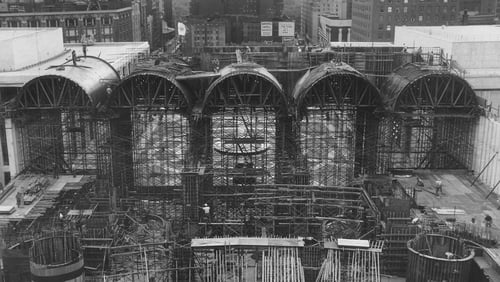
Music
In this documentary, award-winning filmmaker Susan Froemke explores the creation of the Metropolitan Opera’s storied home of the last five decades. Drawing on rarely seen archival footage, stills, and recent interviews, The Opera House looks at an important period of the Met’s history and delves into some of the untold stories of the artists, architects, and politicians who shaped the cultural life of New York City in the ’50s and ’60s. Among the notable figures in the film are famed soprano Leontyne Price, who opened the new Met in 1966 in Samuel Barber’s Antony and Cleopatra; Rudolf Bing, the Met’s imperious General Manager who engineered the move from the old house to the new one; Robert Moses, the unstoppable city planner who bulldozed an entire neighborhood to make room for Lincoln Center; and Wallace Harrison, whose quest for architectural glory was never fully realized.
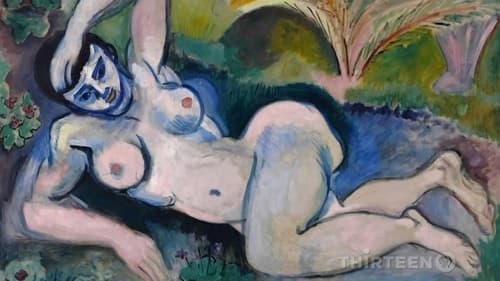
A storm of Modernism swept through the art worlds of the West in the early decades of the twentieth century, uprooting centuries of tradition. The epicenter of this storm was Paris, France. For an incandescent moment from 1905 to 1930, Paris was the magnetic center for radical innovation and experiment, and the Mecca for creative talents who would change the course of art throughout the Western world.
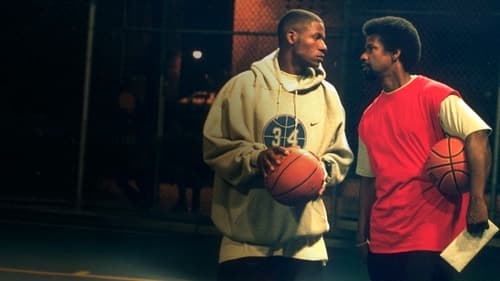
Music
Jake es un preso al que el gobernador del estado le ofrece un trato: reducir su estancia en la cárcel si logra convencer a su hijo Jesús, el mejor jugador de baloncesto de todos los institutos del país, para que fiche por el equipo local. Huérfano de madre y con su padre en prisión, Jesús es un joven que se ha hecho a sí mismo y que ha criado a su hermana pequeña sin ninguna ayuda. Ahora debe resolver en una semana un difícil dilema: aceptar una beca deportiva universitaria o entrar en la NBA. La repentina reaparición de Jake plantea el problema de la reconciliación entre padre e hijo e influye en la resolución del dilema.

Self
Copland himself is the key explicator of his own extraordinary musical career, from piano lessons in Brooklyn and study with Nadia Boulanger, a fling as a wild-eyed modernist, and finally to his preeminence in the American musical world. The program features a wealth of Copland music, including ballet sequences with Agnes de Mille dancing in Rodeo and Martha Graham in Appalachian Spring, scenes of Copland conducting, and interviews with Leonard Bernstein and Ned Rorem, who said of Copland, "He invented out of whole cloth what it means to be American." Written by Vivian Perlis and produced by Ruth Leon.

Self
Dramatizations and actual archival film footage and photographs combine to relate the life of American composer Charles Ives and to document the musical background which influenced his work. Composers Aaron Copland and Elliott Carter reminisce about Ives and discuss his music.

German-Brazilian production on the life of Brazilian composer Heitor Villa-Lobos.

Self - Composer and conductor
This concert film made in the Dorothy Chandler Pavilion in Los Angeles in 1976 captures a memorable performance conducted by the doyen of American composers, Aaron Copland. It includes some of his greatest and most attractive music, from the patriotic flourish of Fanfare for the Common Man and the spirited orchestral fantasy El Salón México, to the colloquial warmth of his suite from the opera The Tender Land. Of particular importance is the collaboration with the great Benny Goodman in the masterwork he commissioned and premiered, the Clarinet Concerto.
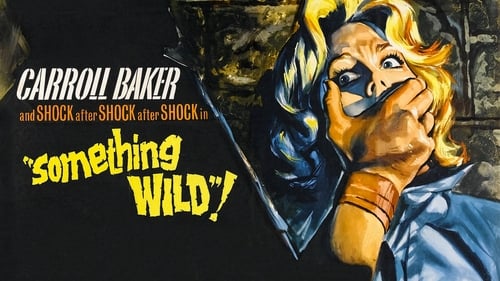
Conductor
Mary Ann Robinson, una mujer joven que vive en el Bronx, Nueva York, con su neurótica y autoritaria madre, y con su amable pero ineficaz padrastro, es violada mientras camina hacia su casa una noche. Guarda el secreto de su ataque, Mary Ann se escapa, buscando perderse en Manhattan, alquila un piso de mala muerte y toma un trabajo en una tienda. Abrumada por la hostilidad de la gente y su propia desesperación, Mary Ann intenta saltar desde el puente de Manhattan, sólo para ser detenida por Mike, un mecánico que la lleva a su ,odesto apartamento. Al principio se siente agradecida de la bondad de Mike, pero después Mary Ann se ve aterrorizada cuando Mike se niega a dejarla ir. Es realmente Mike un salvador o es otro violador?

Music
Mary Ann Robinson, una mujer joven que vive en el Bronx, Nueva York, con su neurótica y autoritaria madre, y con su amable pero ineficaz padrastro, es violada mientras camina hacia su casa una noche. Guarda el secreto de su ataque, Mary Ann se escapa, buscando perderse en Manhattan, alquila un piso de mala muerte y toma un trabajo en una tienda. Abrumada por la hostilidad de la gente y su propia desesperación, Mary Ann intenta saltar desde el puente de Manhattan, sólo para ser detenida por Mike, un mecánico que la lleva a su ,odesto apartamento. Al principio se siente agradecida de la bondad de Mike, pero después Mary Ann se ve aterrorizada cuando Mike se niega a dejarla ir. Es realmente Mike un salvador o es otro violador?
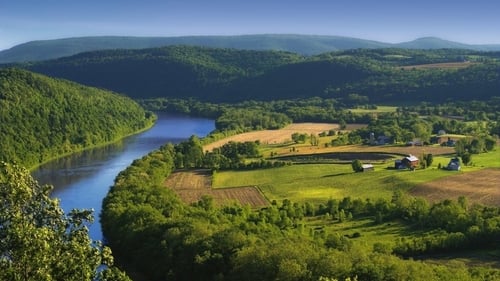
Music
A filmed version of Aaron Copland's most famous ballet, with its original star, who also choreographed.

Music
A pioneer of visual music and electronic art, Mary Ellen Bute produced over a dozen short abstract animations between the 1930s and the 1950s. Set to classical music by the likes of Bach, Saint-Saëns, and Shoshtakovich, and replete with rapidly mutating geometries, Bute’s filmmaking is at once formally rigorous and energetically high-spirited, like a marriage of high modernism and Merrie Melodies. In the late 1940s, Lewis Jacobs observed that Bute’s films were “composed upon mathematical formulae depicting in ever-changing lights and shadows, growing lines and forms, deepening colors and tones, the tumbling, racing impressions evoked by the musical accompaniment.” Bute herself wrote that she sought to “bring to the eyes a combination of visual forms unfolding along with the thematic development and rhythmic cadences of music.”

Music
Early Lindsay Anderson industrial film promoting Sutcliffe's conveyors. Three different uses of Sutcliffe's conveyor installations.
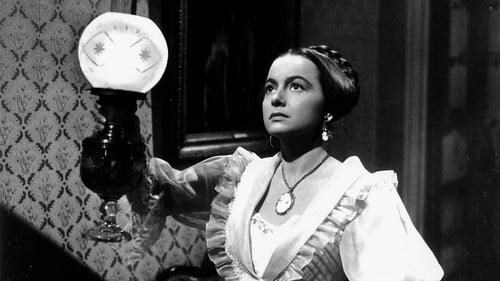
Original Music Composer
Año 1849, en Nueva York. Catherine Sloper, una rica heredera, tímida, inocente, poco agraciada y no muy joven, es pretendida por un apuesto joven. Ella se enamora de él apasionadamente, pero su cruel y despótico padre se opone a la boda y amenaza con desheredarla...

Self
This video depicts Tanglewood in its very early years. It contains very rare footage of Serge Koussevitzky and Aaron Copland.
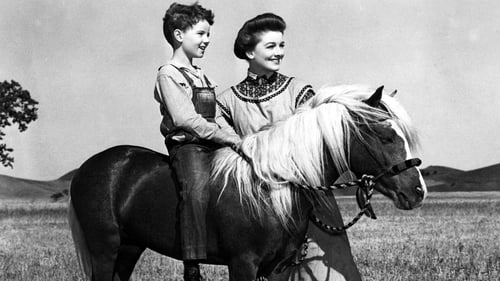
Original Music Composer
Adaptación de una novela de John Steinbeck. Tom Tiflin es un niño que vive en una granja de California con sus padres y con el intrépido Billy Buck. A Tom le regala su padre un pony rojo para ganarse su simpatía. El pony se convierte entonces en el centro de la vida del niño. Billy, que fue, en otros tiempos, un profesional del rodeo, le ayuda a adiestrarlo. Pero un día de lluvia el animal se escapa y regresa enfermo. Billy intenta curarlo con la ayuda del abuelo de Tom, recién llegado a la granja, pero el estado del pony es grave.

Music
Segunda Guerra Mundial. En el verano de 1941, los alemanes invaden las poblaciones fronterizas de la Rusia comunista, siendo Estrella del Norte una de ellas. Mientras un grupo de jóvenes procedentes de este lugar parten en un viaje que se les complicará por el camino.
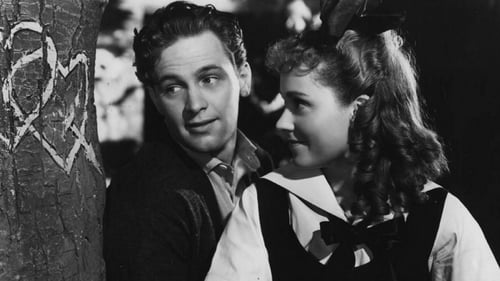
Original Music Composer
Los cambios llegan lentamente a una pequeña localidad del estado americano de New Hampshire, en los albores del siglo XX. La gente nace, crece, se casa, vive y muere. El periódico y la leche se reparten cada mañana y nadie cierra con llave la puerta de sus casas...
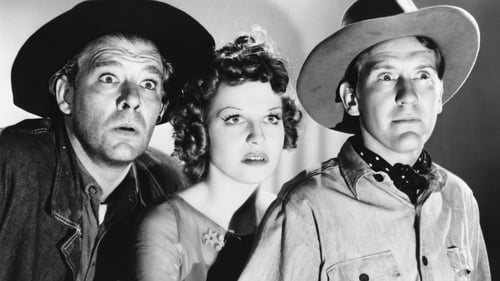
Original Music Composer
Años 30. Adaptación de la novela de John Steinbeck “De ratones y hombres” sobre la América de la Gran Depresión. Los protagonistas son dos amigos en paro, uno de ellos un retrasado mental, que son contratados para trabajar en un rancho.

Music
Polemic documentary extolling the virtues of suburban life and leaving cities as a place of industry.

A romantic pair leaves their flat for a desultory burlesque show and two workmen take advantage of the empty house to pilfer a wallet.











